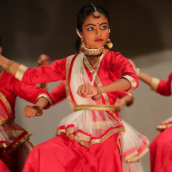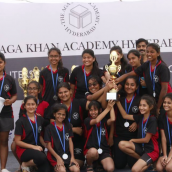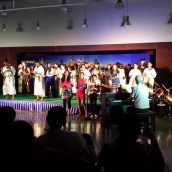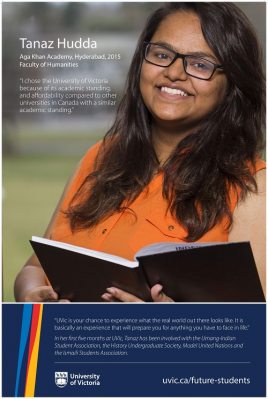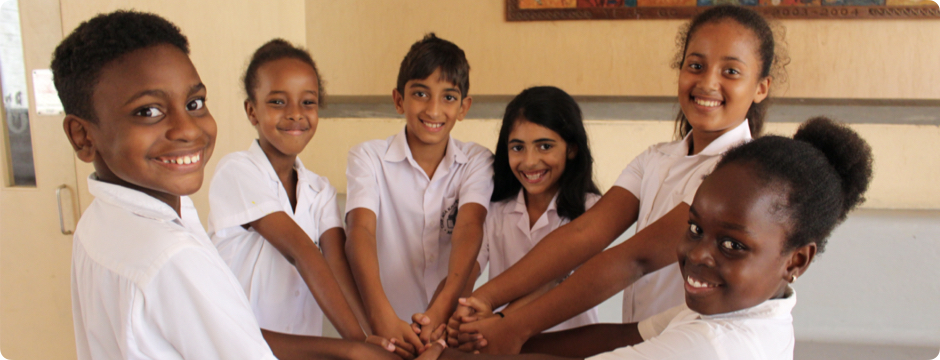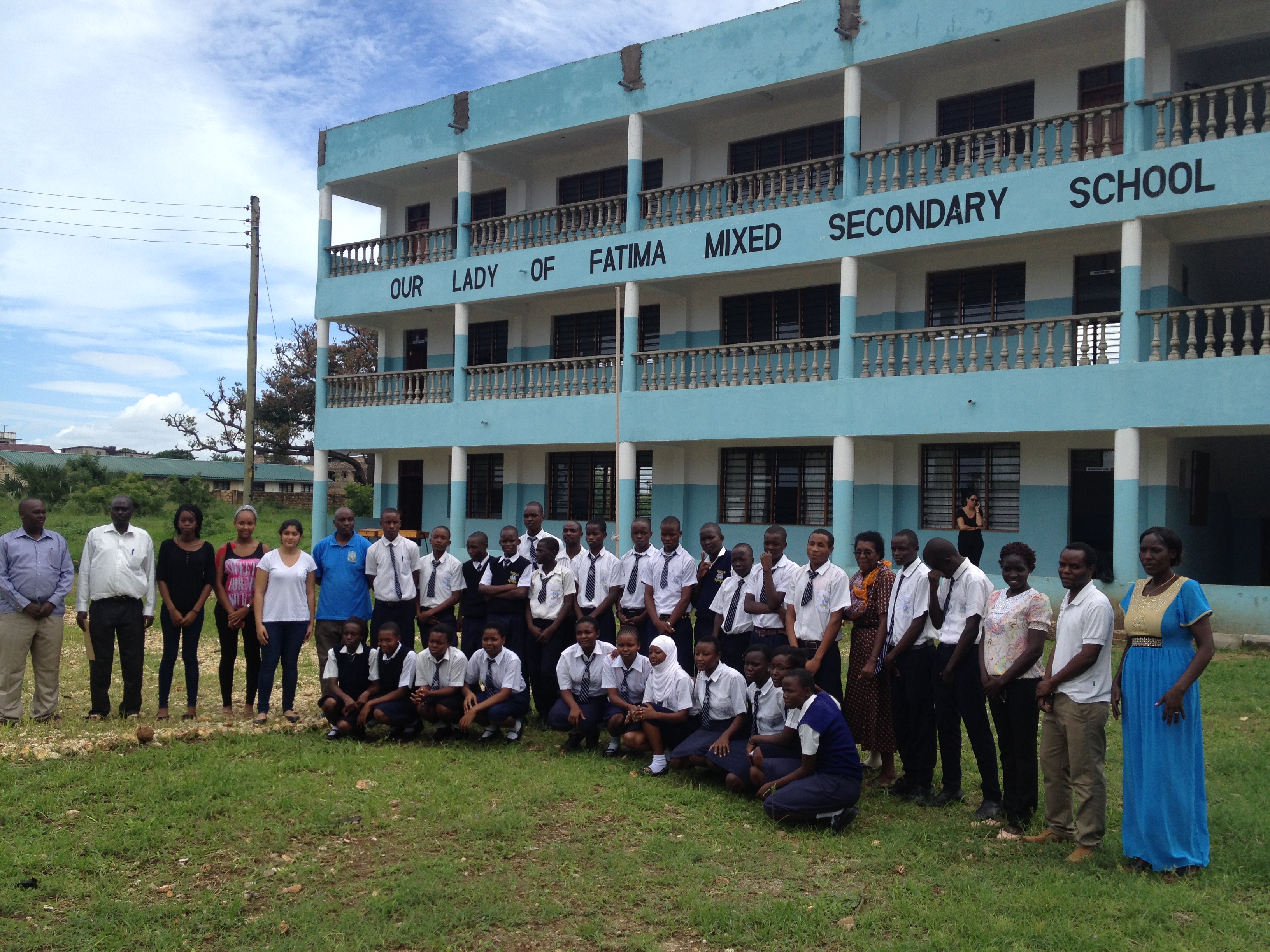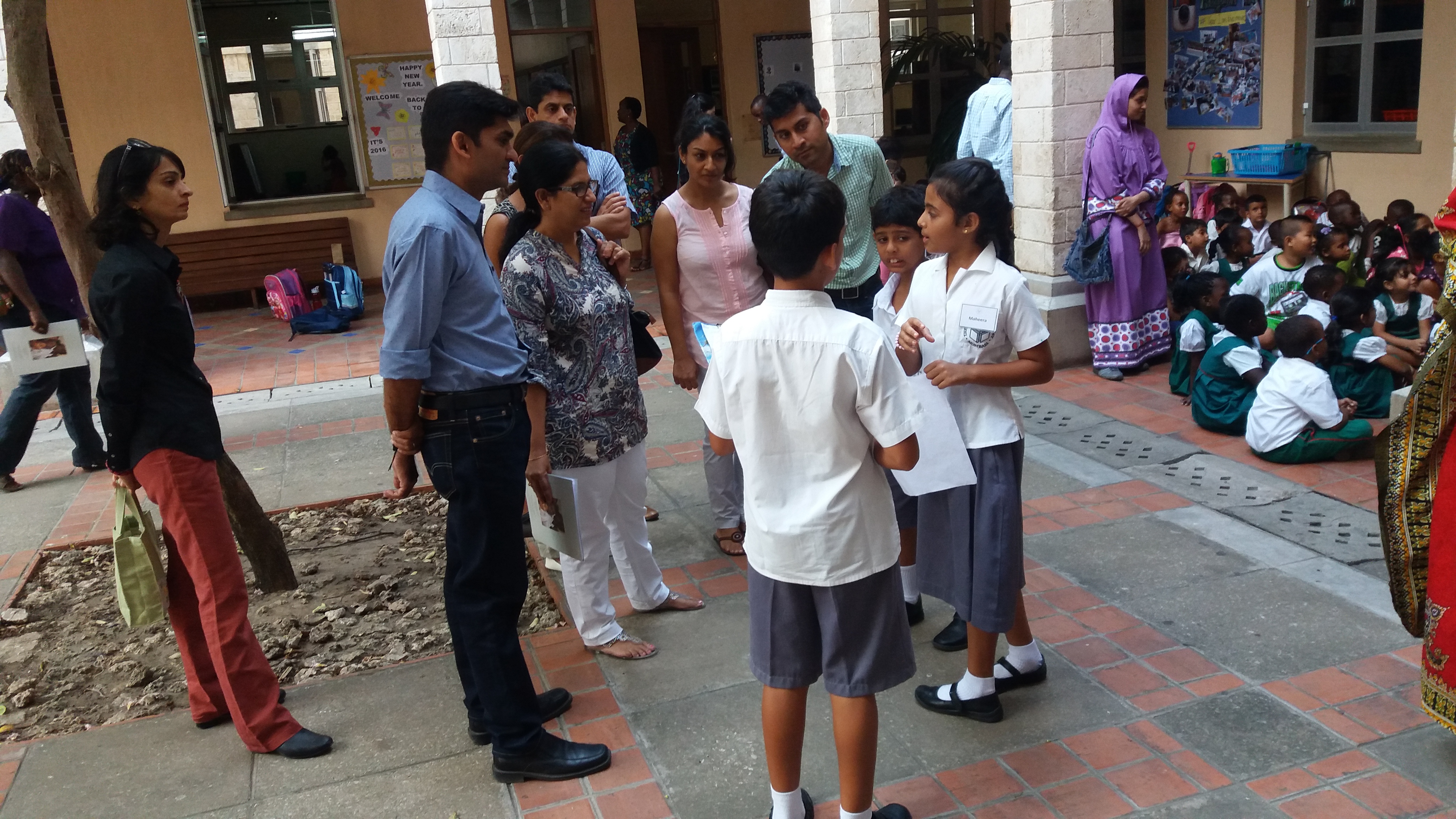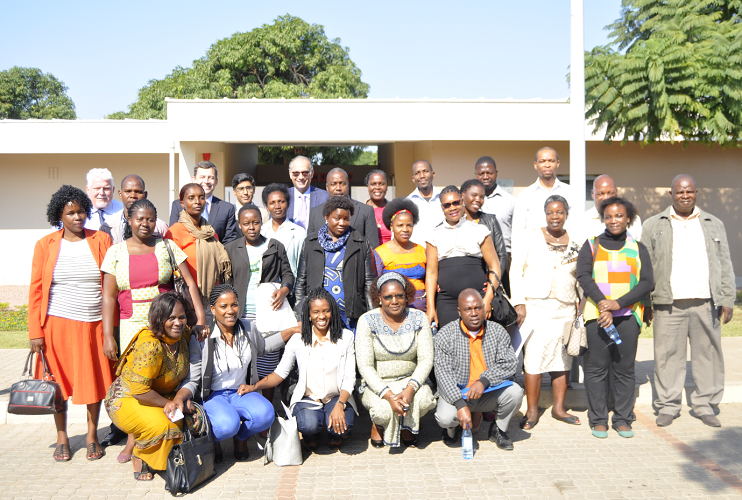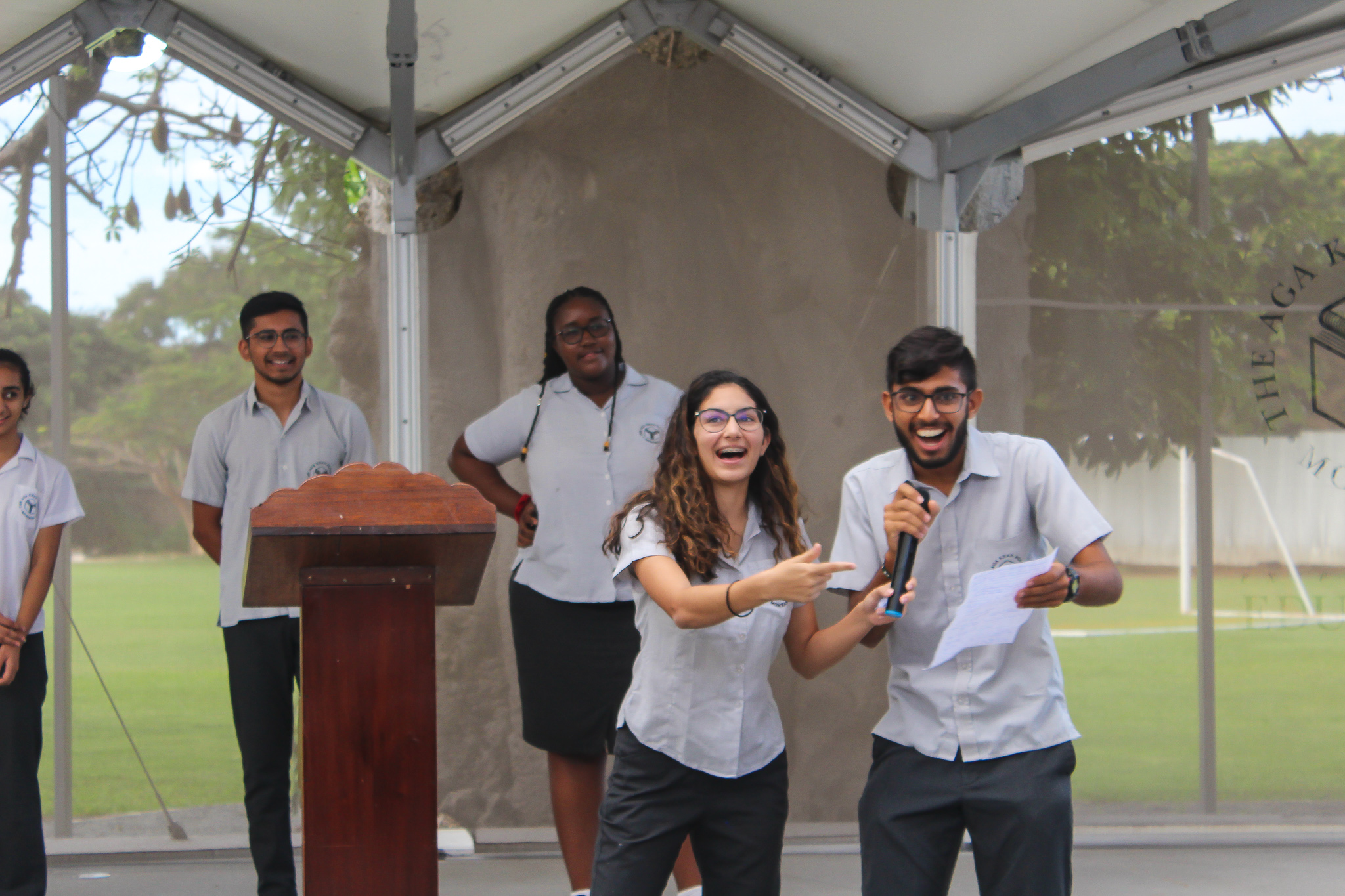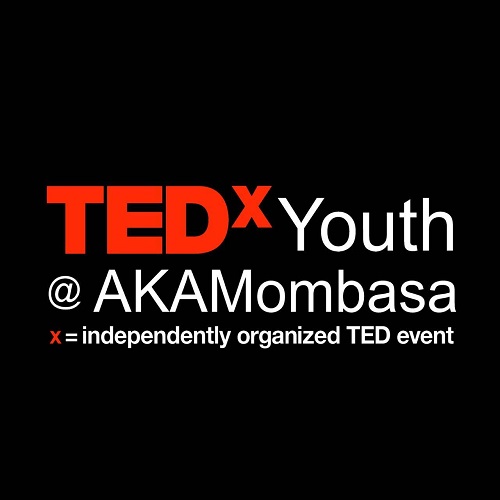Anahita Aman: Grateful for the Academy’s holistic approach to learning and development
Anahita Aman is in her seventh year at the Aga Khan Academy in Hyderabad. Having started there in grade 5, she is now a grade 11 student in the Diploma Programme. She is wise beyond her years and yet has a youthfulness that is contagious. She is full of hopes and dreams and strives to get the most out of her days at the Academy so that she can ultimately give back to the community and society at large.
For Anahita, the strongest part of the Academy is its holistic approach to student development. “They don’t just focus on the academics but also on sports, music and art – so in that way it’s a really holistic approach to learning, and it’s helped me develop into a multidimensional and multifaceted person,” Anahita says. This holistic approach means that she gets the freedom to explore her passions, and that excites her. She loves music – whether it be singing, playing the keyboard and tabla, or learning Indian dance. She is also a self-proclaimed feminist who is passionate about gender-based violence, gender equality and education for girls. She recently had the chance to fuse these two passions as part of a personal project requirement at school. She wrote, composed, and performed her own songs with powerful messages on these topics.
This year, Anahita made a shift to the residential programme and says that it has been a great learning experience – one that has forced her to come out of her shell. She has learned how to better manage herself and her time, and she has become more independent and more social. “I learned how to adapt to my surroundings, how to adjust with other people and to make things work.” But Anahita feels that she has grown in other ways also, and this stems again from the holistic approach of the Academies.
“Service and action is mandatory as a part of the curriculum…they emphasise the need for community awareness, for concern about society, and they emphasise the need to give back and to make positive and effective contributions to society.” For the service and action component of the Academy’s programme, Anahita was part of fundraising teams that raised money for nearby government schools to install water filtration systems and purchase sports equipment, among other things. “We don’t look at it as an obligation or a compulsion but we do it out of passion, and the Academy gives us that passion, that feeling or need to give back to society,” Anahita says. She is proud of her service accomplishment along with many others that the Academy has also helped her to achieve.
She is a member of the journalism club and has made great strides in her writing skills, including how to better articulate her thoughts. She has taken part in a national sports tournament where she represented her school in football and track and field, having won a silver in high jump. And she has been part of the Model United Nations where she not only got a real sense of how the world works, including how people live and what the prevalent issues are, but also developed skills in public speaking, problem solving and knowledge application. Anahita says, “The Academy helps us apply this knowledge to real-life situations.”
The holistic approach to learning and development that the Academy takes is something that Anahita believes makes it unique. But there are other things too. For one, there is no spoon-feeding. Instead, you’re taught how to learn and how to learn on your own – the approach is not one of rote learning but rather application of real-life situations. She’s also really happy that the Academy creates a safe space. “We have that sense of comfort that there’s no pressure of performing and we have the space to experiment with things. We don’t feel pressure at any point, we don’t feel stressed, and we don’t look at exams as huge challenges but as small barriers that we can overcome.”
Anahita also believes that the Academy’s mission and vision are both important and inspiring. In fact, it was the mission that attracted her parents to send her there. “It teaches us to be culturally rooted and diverse. It teaches us how to accept our differences and so we have this feeling of community,” says Anahita. The Academy also aligns within the framework of the International Baccalaureate (IB) programmes. As such, the attributes of its learner profile are very powerful in instilling life values. All of this is what she believes make it distinct from many other schools.
Anahita credits the Academy for helping her become less shy and less self-conscious. She says, “I feel like I have the comfort to be who I am and to express myself freely. I feel acknowledged and I feel I’m being appreciated for who I am.” When asked if there was any particular person at the Academy that played a big part in this, or whether there was someone she really looks up to, she says that she doesn’t account only one person as a role model but instead looks to the many amazing people she has met along the way for their different but equally important attributes. “I may like someone’s enthusiasm, someone’s hard work and dedication, the way they work with people, the way they bring people together,” Anahita says. “I like to get inspired by these characteristics, by these attributes from different people and imbibe them into myself to be the best person I can be.”
Anahita’s future looks bright. While she is still unsure of what exactly she wants to do, she has learned how to articulate her passion, and that in itself has given her a sense of determination. She hopes to be able to combine her interests in music and literature with humanities and gender studies. She imagines perhaps becoming a poet or musician and incorporating important messages into her work. “I think the Academy is giving me the space and the platform to explore what I’m actually interested in,” Anahita says, “and I think that will lead me to my ultimate ambition.”
By Ceisin Popat
Tanaz Hudda (Class of 2016): Poster girl for University of Victoria
Another lesson that is helping her through university came from one of her Academy teachers. "My teachers were my support system throughout my time at the Academy. One of my favourite teachers who pushed me harder and harder whenever I would perform well or sometimes not so well was Dr. Karuna Arya. I think she instilled this idea in me that one can always do better, even if it appears that you are the best at it. I genuinely cannot forget that lesson as it has helped me so much in the past few months at university." Tanaz also relied on the Academy's staff for help with university choices. "Choosing the kind of university that would suit you the best is always difficult. I had many questions and I had no clue where I would rather go as all universities seemed appealing. For me, the two things that mattered most was affordability and coop opportunities in the field of humanities. I was able to narrow down the list with the help of our University Counsellor, Ms. Pragati, and that made a huge impact on my university choice."
Even though Tanaz has found that Canada can offer her the best career opportunities she believes that giving back to her country and settling down in India is more important. "That connection is what motivates me to study harder and then settle in India to contribute to the greater good of the place I come from. The Academy taught me to strive for excellence, work for the community and be involved in as many extra-curricular activities as possible, as well as never forget where you come from. Giving back to the society has been my goal ever since I joined the Academy and would definitely influence my plans for the future." While at the Academy Tanaz volunteered at a local residential school and helped organise different events for the children there. This and other service projects, such as her volunteering in Nairobi, has convinced Tanaz of the importance of education for India's future, especially in rural schools.
Not only is it important for students to have an education but she also stresses the importance of a 'proper' education. "I have visited many local schools which have neither resources nor adequate training to teach kids what they are supposed to learn. I feel that education is the only chance we have to transform how the nation thinks and that needs to be instilled in rural areas, because India lives in its villages. No education and most of all, improper education could be dangerous in creating false knowledge and sometimes continuing the social evils that exist in a society. Hence, I would focus on making the education system better."
Year One Open House 2018
Every year the Academy invites KG3 parents and their children to the Year 1 Open House. This gives an opportunity for the Junior School students to showcase their talents and leadership, prospective parents an opportunity to find out more about the programmes at the school and for KG3 students to interact with the Academy’s Year1 students in a meaningful way.
